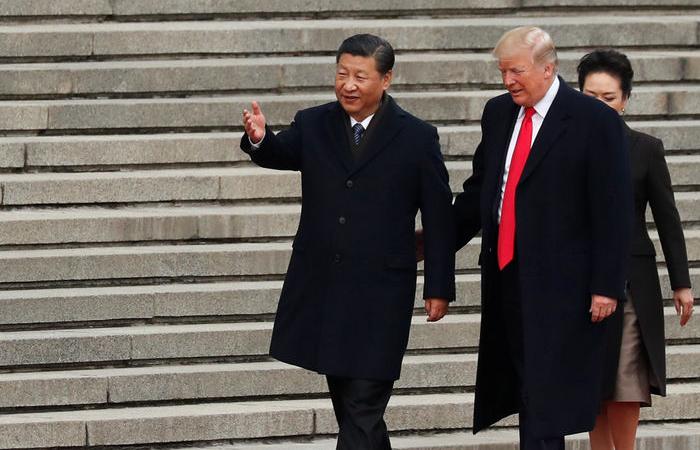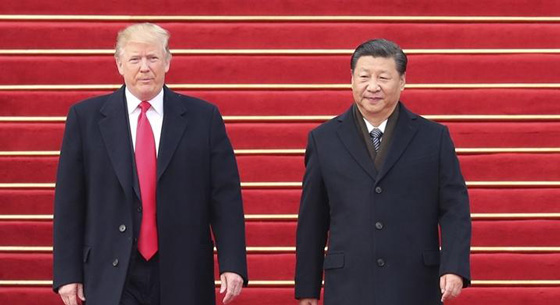Chen Wei, Senior Research Fellow, China Institute of International and Strategic Studies
Dec 22, 2022
Will the Asia-Pacific chart a course forward? Or will it return to the status quo of the Cold War? Mentality matters, and the old thinking inevitably leads to misjudgments. The U.S. sees China through the same prism it once saw the Soviet Union but neglects the fundamental differences of two hugely different ages.
Chung-in Moon , Chairman of the Sejong Institute and Vice Chair of APLN, Republic of Korea
Dec 22, 2022
We need to learn how to respect differences and live harmoniously, because not all people or cultures are alike. It’s not healthy for the new Indo-Pacific concept — which works against open regionalism — to replace the traditional notion of the Asia-Pacific.
Richard Javad Heydarian, Professorial Chairholder in Geopolitics, Polytechnic University of the Philippines
Dec 02, 2022
Despite tensions between the U.S. and China on the economic and political fronts, leaders from both countries found some common ground during their recent meeting in Bali. Presidents Biden and Xi have reiterated their commitment to work together to address transnational challenges, avoid conflict with each other, and maintain open communication.
He Weiwen, Senior Fellow, Center for China and Globalization, CCG
Jul 12, 2022
The systemic challenge for the U.S. is not China but the worst inflation in 40 years. In fact, fragmentation does not seem to be happening in the real world. Even an Asia-Pacific version of NATO will not likely divide the region, as China will continue to be a major trade partner.
Lucio Blanco Pitlo III, President of Philippine Association for Chinese Studies, and Research Fellow at Asia-Pacific Pathways to Progress Foundation
Jun 30, 2022
The IPEF - a U.S.-initiated trade and development partnership - is poised to bring in enthusiastic participation from several nations in the Asia-Pacific region. Notably, Southeast Asian states are well represented among members, giving the U.S. considerable influence right in China’s backyard.
Zhang Yun, Professor, School of International Relations, Nanjing University
May 31, 2022
Thirteen countries in the Indo-Pacific region have joined the initiative, which indicates interest. But there are problems with the framework as presented that raise questions about its ability to succeed and endure.
Tang Xinhua, Associate Researcher, Tsinghua University’s Institute of International Relations
May 30, 2022
The goal of the United States in creating the IPEF is to gain an asymmetric technological advantage over China and to create an environment for long-term competition. It wants a new rules-based Indo-Pacific order forged in its own image.
Wu Zhenglong, Senior Research Fellow, China Foundation for International Studies
Dec 15, 2020
The country is confident that it will meet the emerging trade partnership’s high standards through reforms at home. But the U.S. and others may attempt to derail it through the “poison pill” clause of the USMCA.

Eric Farnsworth, Vice President, COA, Washington D.C. Office
Jan 08, 2018
U.S. policy-makers must recognize that the most productive path forward is not to maneuver into constant conflict with China but rather to concentrate on our own competitiveness, to restore a sense of national unity, and to re-emerge from the current political cycle as an example of an open market democracy that others are both willing and able to emulate.

Jia Wenshan, Professor, Chapman University
Benjamin Leffel, Ph.D. student in Department of Sociology,University of California Irvine
Dec 18, 2017
Fading is the “mutually assured destruction” (MAD) defining of Cold War rivalries, as great power relations have marinated long enough in globalization to give way to a deep interdependence, one which lends itself more so to Mutually Assured Gains or “MAG”. Such is the case with U.S.-China relations, though the national-level of this relationship offers more of a precarious bag of mixed results.
Back to Top

- China-US Focus builds trust and understanding between the U.S. and China through open dialogue among thought leaders.
- Our Offerings
- Topics
- Videos
- Podcasts
- Columnists
- Research Reports
- Focus Digest
- Stay Connected
-
Thanks for signing up!
- Get the latest stories from China-US Focus weekly.